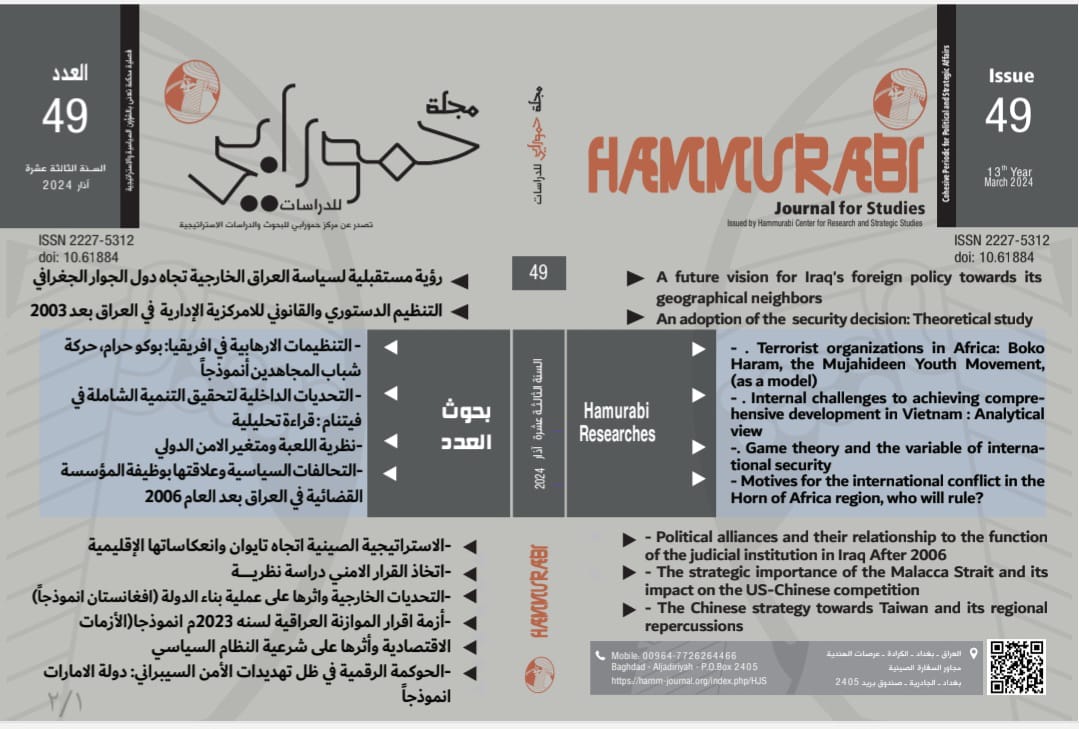Lecturer at Al-Nahrain University, Faculty of Political Science, Department of Political Systems
DOI:
https://doi.org/10.61884/hjs.v13i49.446Abstract
The current Tunisian experience is related to the various stages of transition that the country has witnessed since the change of the Tunisian political system on the fourteenth of January 2011, whether in the preliminary stage of change, the subsequent transitional stage, or the post-transitional stage. It is characterized by the lack of clarity of development policies and the failure to give regional development its due importance or priority in order to advance the social and economic reality of the members of Tunisian society, achieve distributive justice, create a system of democratic checks and balances, as well as establish the principle of distinguishing between the inland and coastal actors and excluding them from participation and the decision-making process in the country’s public policies. This is what created the nature of economic imbalances which most of the country's population has suffered from. The state is a legal entity that works to achieve its interests through decision makers who are in control by determining the priority of political interests and goals according to their perceptions.
key words: regional development, regionalism, local development, developmental imbalance.












